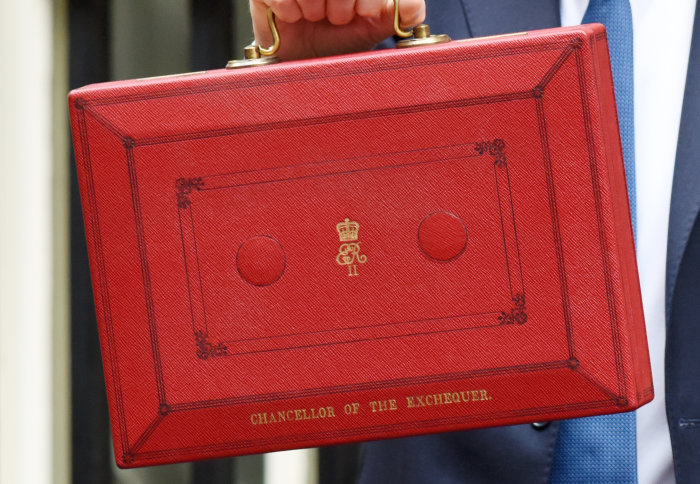In the intricate realm of wealth management, family trusts stand as a cornerstone for safeguarding assets, ensuring their seamless transfer across generations, and optimising tax strategies for discerning individuals and families. As an experienced accountant with a deep understanding of these legal arrangements, we frequently guide clients through the complexities of family trusts and their tax implications. Embark on a journey with us as we delve into the labyrinth of family trusts and uncover the secrets to preserving your wealth and minimising your tax burden.
First lets understand what is a Family Trust?
1. What is a family trust?
It’s a legal arrangement where assets are held by a trustee for the benefit of specified beneficiaries.
2. Who establishes a family trust?
The settler is an individual who relinquishes ownership of assets to the trust.
3. What is the role of the trustee?
Trustee’s role is to manage and distribute trust assets according to the settlor’s wishes.
4. Who is the beneficiary?
An individual or entity designated to receive the benefits of the trust assets.
Why Choose a Family Trust? A Compelling Case for Wealth Preservation and Tax Optimisation
Family trusts offer a multitude of benefits, making them an attractive option for individuals and families seeking to protect their assets, optimise taxes, and ensure the seamless transfer of wealth across generations.
Here are some compelling reasons to consider a family trust:
• Protect Assets for Beneficiaries: Family trusts effectively shield assets from potential creditors or legal claims, ensuring that they remain intact for the intended beneficiaries.
• Safeguard Assets from Divorce: Assets held in a family trust are generally protected from division in the event of a divorce, ensuring that they remain available for the beneficiaries’ benefit.
• Provide for Children Under 18: Family trusts provide a structured and tax-efficient approach to managing assets for children under the age of 18, ensuring their financial security and well-being.
• Balance Family Dynamics: Family trusts can be tailored to accommodate complex family dynamics, ensuring that all family members, including current spouses and children from previous relationships, are adequately provided for.
• Minimise Inheritance Tax: Family trusts can effectively reduce or eliminate inheritance tax liabilities for beneficiaries, preserving a larger portion of the estate for future generations.
Family Trusts in the UK: Understanding the Different Types
Among the diverse types of family trusts established in the UK, several stand out as particularly common:
1. Bare Trusts: Bare trusts offer a straightforward approach to asset holding, where the trustee manages the trust property and assets, granting the beneficiary the right to access the entire trust capital and income upon reaching the age of 18 or over (applicable in England and Wales).
2. Interest in Possession Trusts: Interest in possession trusts prioritise the beneficiary’s financial well-being by granting them access to the trust’s income, minus any incurred expenses. The trustee manages the trust assets but lacks the authority to distribute the capital.
3. Discretionary Trusts: Discretionary trusts provide trustees with greater flexibility in managing trust assets and distributing income. They have the power to determine how and when the beneficiary receives the trust’s income and, in some cases, the capital. This flexibility allows trustees to tailor distributions based on the beneficiary’s evolving needs and circumstances.
4. Settlor-Interested Trusts: Settlor-interested trusts, as the name suggests, benefit the settlor or their spouse, allowing them to access the trust’s income and, in some cases, the capital. These trusts are often used for tax planning purposes or to provide additional financial security for the settlor and their spouse.
5. Non-Resident Trusts: Non-resident trusts are established outside the UK, primarily for tax planning purposes. These trusts can offer certain tax advantages, such as avoiding UK income and capital gains taxes. However, careful consideration of legal and tax implications is essential before setting up a non-resident trust.
Choosing the right type of family trust depends on various factors, including the settlor’s objectives, the beneficiaries’ needs, and the desired level of trustee control. Seeking professional guidance from an experienced accountant or financial advisor is crucial to ensure the most suitable trust structure is established, maximising the benefits and aligning with the overall financial plan.
Navigating Tax Implications
Family trusts introduce a unique set of tax considerations that accountants must carefully navigate.
Here are some key aspects to bear in mind:
• Inheritance Tax (IHT): Upon establishing a trust, the settlor may be liable for IHT on the value of assets transferred. However, after seven years, the trust generally becomes exempt from IHT, effectively shielding the assets from this tax.
• Income Tax: The tax treatment of income generated by the trust depends on the type of trust, the beneficiaries, and the jurisdiction. In general, the trust pays income tax on its income, but beneficiaries may also be liable for additional tax on distributions received.
• Capital Gains Tax (CGT): When trust assets are sold, the trust may be liable for CGT. However, careful planning can minimise CGT liabilities.
Strategic Tax Optimisation for Affluent Individuals
High-net-worth individuals frequently utilise family trusts to minimise their tax liabilities and preserve wealth for future generations.
Here are some common strategies employed:
Gift Tax Reduction: Family trusts enable individuals to transfer assets to beneficiaries without incurring gift taxes, effectively reducing their taxable estate. This strategy can significantly lower the overall tax burden associated with wealth transfers.
Income Tax Shifting: Income generated within the trust is often taxed at the trust’s lower tax rate, potentially reducing the overall tax burden. This strategy is particularly beneficial for individuals in higher tax brackets.
Inheritance Tax Avoidance: Family trusts can effectively remove assets from the settlor’s estate, reducing or eliminating inheritance taxes upon their passing. This strategy can preserve a larger portion of the estate for future generations.
Dynastic Trusts: These specialised trusts allow wealth to be passed down through multiple generations without incurring additional inheritance taxes. This strategy ensures the continuity of wealth preservation and tax efficiency across generations.
Advanced Tax Efficiency Strategies
Helping clients with sophisticated tax-saving methodologies:
• Careful Trust Design: Crucial to optimising tax benefits, aligning trust structures with specific objectives.
• Strategic Asset Selection: Choosing tax-efficient assets is paramount for optimal trust performance.
•Timely Asset Transfer: Sensible timing of asset transfers significantly impacts tax liabilities.
• Ongoing Tax Compliance Measures: Regular monitoring and adherence to tax regulations sustain the trust’s tax advantages.
• Holistic Professional Counsel: Aligning tax strategies with broader financial plans ensures sustained growth and protection.
Securing Financial Legacies for Generations to Come
Mastery of family trusts paves the way to fortify wealth, mitigate tax burdens, and facilitate the seamless transfer of assets across generations. A deep comprehension of the nuances of family trusts, coupled with meticulous tax optimisation strategies, is the gateway to securing financial legacies that endure.
In the ever-evolving terrain of wealth management, family trusts remain steadfast anchors. Their ability to protect, optimise taxes, and facilitate intergenerational wealth transfer remains unparalleled, making them indispensable for securing and enhancing financial well-being across generations.












